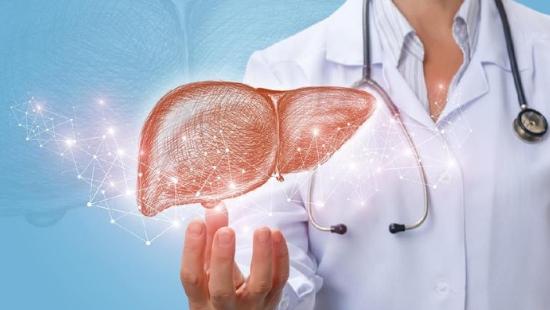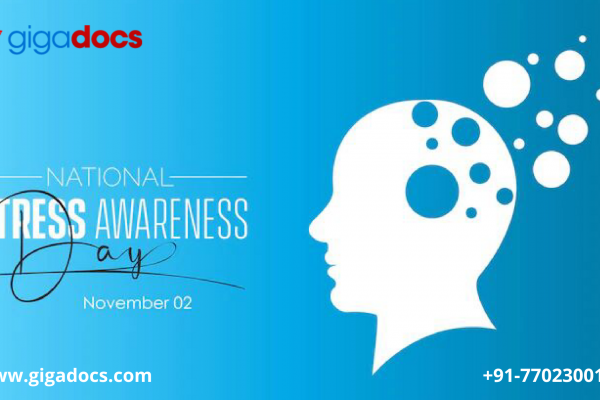The thyroid is a butterfly-shaped gland located at the base of the neck, below Adam’s apple. It is a member of the endocrine system, which is in charge of coordinating a lot of our body’s functions and regulating its metabolism.
The thyroid gland produces two hormones: thyroxine (T4) and triiodothyronine (T3). These hormones are essential for children’s mental and physical growth, as well as adult metabolic activity. Thyroid hormones help the brain, heart, liver, muscles, and other organs function properly.
To raise awareness on Thyroid disorders, it’s causes symptoms, and treatment, May 25th is annually observed as World Thyroid Day (WTD). This day is committed to thyroid patients and all those working to better understand and treat thyroid problems around the world.
Types of Thyroid Disorders-
- Hyperthyroidism – It is the production of more thyroid hormones by the thyroid gland than the body requirement. Hyperthyroidism affects about one percent of women.
- Hypothyroidism – It is the production of fewer thyroid hormones by the thyroid gland than the body requirement.
- Hashimoto’s thyroiditis- In this autoimmune disorder, the body self-attacks thyroid tissue, which eventually dies and stops producing hormones.
- Graves’ disease – It is an autoimmune disorder that is the main cause of hyperthyroidism or overactive thyroid.
- Goiter- It is a condition in which the thyroid gland enlarges abnormally.
Thyroid Causes
There can be several causes of Thyroid –
- Autoimmune diseases like Rheumatoid Arthritis, Type 1 Diabetes, Vitiligo, Rheumatic fever, or Pernicious Anemia/Atrophic Gastritis.
- Hyperthyroidism treatments.
- Radiation therapy.
- Thyroid surgery.
- Iodine deficiency.
- Non-functioning thyroid gland.
Thyroid Symptoms
The symptoms of thyroid vary according to the presence of the thyroid hormones-
Overactive thyroid (hyperthyroidism) symptoms can include:
- Anxiety, Irritability, and Nervousness.
- Trouble Sleeping.
- Weight loss.
- Abnormal enlargement of the thyroid gland.
- Tremors and muscle weakness.
- Experiencing irregular menstrual cycles or having a pause in your menstrual cycles.
- Heat flashes
- Irritation of the eyes or vision impairment.
Underactive thyroid (hypothyroidism) symptoms can include:
- Feeling fatigued.
- Gaining weight.
- Having trouble remembering things.
- Periods that are both frequent and heavy.
- Hair that is dry and coarse.
- Intolerance to cold temperatures.
Thyroid High-Risk group
Men, women, newborns, teenagers, and the elderly can all be affected by thyroid disease. While it’s not uncommon to see Hypothyroidism cases at birth, it can even develop after the onset of menopause in women.
If you have any of the following, you may be at a higher risk of having thyroid disease:
- Thyroid disease runs in the family.
- Have a chronic illness such as Pernicious Anemia, Type 1 Diabetes, Lupus, or Rheumatoid Arthritis.
- Taking high Iodine (amiodarone) content medications.
- Are older than 60, and especially women.
- Have had thyroidectomy or radiation treatment for a Thyroid condition or cancer respectively.
Diabetes and Thyroid Disease
Thyroid disease is more likely to develop in people who have diabetes. Type 1 diabetes is an autoimmune disease that increases the likelihood of thyroid disease. Comparatively, Type 2 diabetes carries a lower risk of thyroid and is more likely to develop a thyroid disease as their age progresses.
People with diabetes must go for regular testing to check for any thyroid severities. Type 1 must opt for a Thyroid test immediately after a diabetes diagnosis and then annually every year. For Type 2, there is not a regular schedule for testing; however, your healthcare provider may suggest a schedule for ad-hoc testing.
Here are a few measures that may help you feel better if you have diabetes and your thyroid test comes positive-
- Get enough sleep.
- Exercise regularly, which may include brisk walking.
- Watch your diet.
- Take your medications as prescribed.
- Get regularly tested for your thyroid levels.
Diagnosing Thyroid Disease
Thyroid disease can be challenging to diagnose since the symptoms are similar to those of other illnesses. Here are a few tests which can assist in identifying whether your symptoms are caused by a Thyroid disorder. These tests include the following:
- Blood tests.
- Imaging tests.
- Physical exams.
Blood Tests for Thyroid
Blood tests are one of the most accurate methods to diagnose Thyroid disorder. Thyroid blood tests measure the level of thyroid hormones in your blood to determine if your thyroid gland is functioning normally. Blood is drawn from a vein in your arm for these tests. Thyroid blood tests identify whether or not you have:
- Hyperthyroidism.
- Hypothyroidism.
The specific blood tests which will be done to test your thyroid can include:
Thyroid-stimulating hormone (TSH) is a hormone released by the pituitary gland that modulates the balance of thyroid hormones in the bloodstream, including T4 and T3. This is usually the first test your doctor will perform to see if you have a thyroid hormone imbalance. Thyroid hormone deficit (hypothyroidism) is usually accompanied by an elevated TSH level, whereas thyroid hormone excess (hyperthyroidism) is usually accompanied by a low TSH level.
- T4: Thyroxine tests are used to monitor thyroid medication and diagnose hypothyroidism and hyperthyroidism. Hypothyroidism is identified by low T4, while hyperthyroidism is recognized by high T4 levels.
- T3: Triiodothyronine tests are used to detect hyperthyroidism and to assess its severity. T3 levels would be low in hypothyroidism, but this test is more commonly used to diagnose and treat hyperthyroidism, which has raised T3 levels.
- Thyroid Antibodies: These tests aid in the diagnosis of various autoimmune thyroid disorders. Common thyroid antibody tests include microsomal antibodies, thyroglobulin antibodies, thyroid receptor antibodies, and thyroid blocking immunoglobulin tests.
- Calcitonin: A blood test used to diagnose C-cell hyperplasia and medullary thyroid carcinoma, two rare thyroid illnesses.
- Thyroglobulin: This test is used to diagnose thyroiditis (inflammation of the thyroid gland) and to monitor the progress of thyroid cancer treatment.
The ranges for these thyroid blood tests should be discussed with your Thyroidologist who may prescribe an ultrasound thyroid scan to check the severity of the thyroid.
Thyroid Care with Gigadocs
The thyroid is a common hormone disease diagnosed in India. If you or your family member experiences symptoms like the ones discussed above, wait no further. We advise you to consult a Thyroidologist or an Endocrinologist on your Gigadocs E-healthcare app. Digital consultations are safer and can be availed from the privacy of your home, where you can talk to your doctor over a call or a video consultation. Gigadocs even offers you the facility of digital medical record storage and digital prescriptions, which you can access anywhere, even on the move, and consult doctors for the best prescriptive Thyroid care.
Download the Gigadocs app from-
- IOS App – apple.co/2W2iG4V
- Android App – bit.ly/33AQoRC
To know more and schedule a demo, e-mail, at info@gigadocs.com




